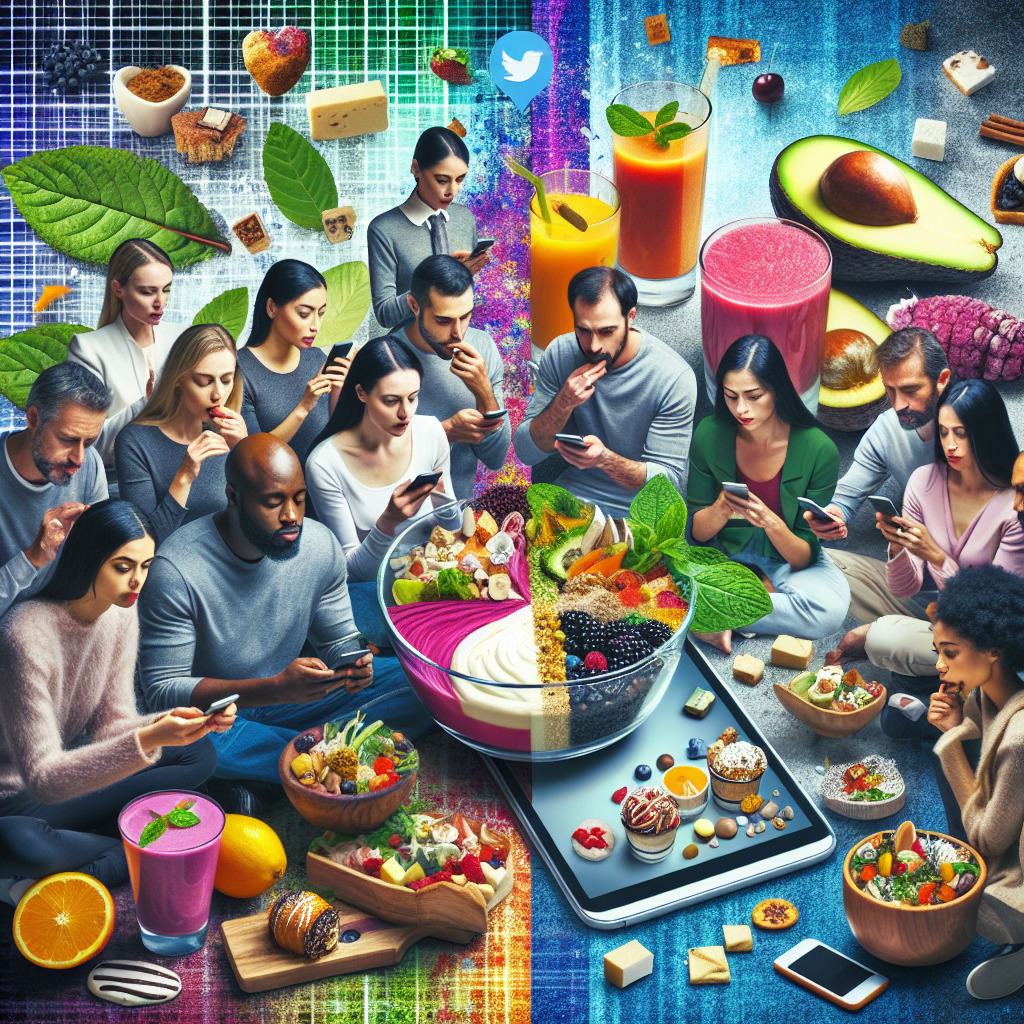Key Takeaways
The Digital Lifestyle: An Eating Revolution
In today’s digitally-driven world, social media stands as a powerful force that impacts various aspects of our lives, including our eating habits. Platforms like Instagram, TikTok, and Pinterest offer a continuous stream of food-related content, from enticing recipes to nutrition advice. This visual feast often shapes dietary preferences in profound ways.
How Social Media Influences Food Choices
Social media’s influence on eating habits is significant, particularly in terms of food choices. Users are continuously exposed to trending food items, viral recipes, and influencer endorsements. This exposure often results in:
- Craving Stimulation: Repeated imagery of delicious foods can trigger cravings, prompting individuals to try new dishes or cuisines.
- Dietary Exploration: People are more inclined to experiment with their eating habits, whether that’s trying regional specialties or popular diet trends, such as plant-based foods.
- Meal Aesthetic Pressure: A rise in posts showcasing aesthetically pleasing meals might pressure individuals to prioritize visual appeal over nutritional content.
Expert Insights: The Psychological Angle
Experts suggest that social media’s impact extends beyond mere food choice; it influences the psychological aspects of eating. A few key insights include:
- Mindless Eating: Distracted by endless scrolling, users may indulge in mindless snacking, leading to additional calorie consumption.
- Food Displacement: Prioritizing trendy diets seen on social media might replace balanced meals with inadequate nutritional regimens.
- Body Image Concerns: Constant exposure to ‘perfect’ food and body images can lead to an unhealthy relationship with food and self-esteem issues.
The Positive Side: Promoting Healthy Habits
While it is easy to focus on the negatives, social media platforms also promote positive dietary behavior. Various trends have contributed to a more health-conscious society:
- Vegan and Vegetarian Trends: Many influencers highlight the benefits of plant-based diets, encouraging a shift towards sustainable and ethical eating practices.
- Accessibility to Information: Nutritionists and dietitians provide valuable content on balanced diets and healthy recipes, making reliable information more accessible.
These trends promote healthier eating habits and foster a better understanding of the relationship between food and health.
Strategies for Healthy Social Media Consumption
To leverage social media’s positive impact while avoiding its pitfalls, experts recommend the following strategies:
- Mindful Interaction: Set specific times for social media use to prevent constant food exposure, which may encourage cravings.
- Curate Content: Follow accounts that promote wholesome recipes, nutritional knowledge, and realistic lifestyle tips.
- Balance Visual Inspiration with Reality: Appreciate aesthetically pleasing food posts without compromising on nutritional values.
Conclusion: Navigating Social Media Wisely
Social media greatly influences our eating habits, shaping food choices, behavior, and perceptions. By understanding these impacts, individuals can better navigate their social media consumption to foster positive dietary practices. It is crucial to embrace the wealth of positive content available and to approach the digital culinary world with a critical eye, maintaining a balanced and informed relationship with food.

